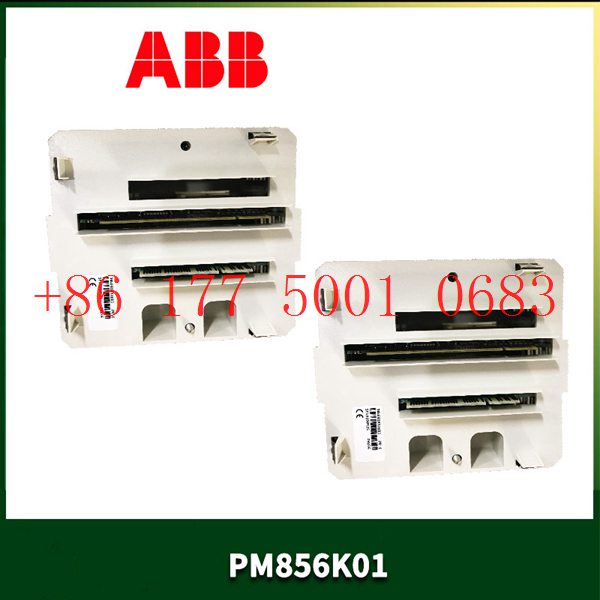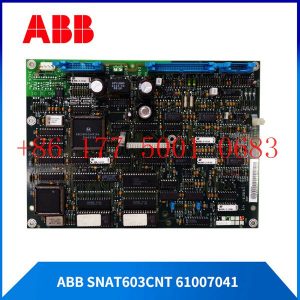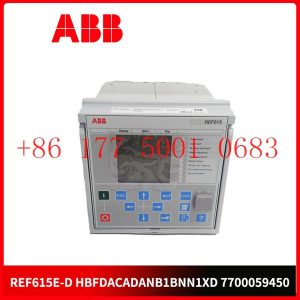Description
ABB will establish a new healthcare research center at the Texas Medical Center in Houston, USA, in October this year to install advanced collaborative robots for medical laboratories and hospitals.
The new facility located at the Texas Medical Center Innovation Park will focus on the development of non-surgical medical robots. System,
by 2025, the global market for non-surgical medical robots is expected to reach nearly 60,000 units, nearly four times that of 2018.
ABB announced that it will introduce collaborative robots into medical laboratories and will set up a new healthcare research center at the Texas Medical Center Innovation Campus in Houston, Texas,
USA. The center will be opened in October 2019 and will be ABB”s first research center dedicated to the healthcare field. ABB”s research team will work with
medical staff, scientists and engineers on the Texas Medical Center campus to develop non-surgical medical robotic systems, including logistics and next-generation automated laboratory technology.
An Shiming, President of ABB Group”s Robotics and Discrete Automation Division, said: “Developing next-generation laboratory processes in Houston will speed up manual workflows in medical laboratories, reduce and eliminate
bottlenecks in laboratory work, and improve safety and consistency. “This is especially true for high-tech new treatments, such as the cancer treatment pioneered by the Texas Medical Center, which currently require a labor-intensive and time-intensive testing process.”
At this stage, the number of patients who can be treated is limited by the shortage of highly qualified medical experts, who spend a lot of time performing repetitive and simple tasks, such as
preparing slides and loading centrifuges. Automating these tasks through the use of robots will allow medical professionals to focus on higher-skilled and more productive work, significantly
speeding up the testing process and ultimately helping more people receive treatment.
ABB has analyzed the current large number of manual processes in medical laboratories and predicts that through the use of automation, the number of tests performed
each year will increase by 50%. Training robots to complete repetitive processes will reduce the need for personnel and reduce repetitive strain injuries on the human body.
As the world”s population ages, countries” health expenditures account for an increasing proportion of their gross domestic product. Improving healthcare efficiency through automation
will not only improve the quality of patient care but also alleviate a range of social, political and financial challenges arising from the above issues. An internal ABB study shows that the non-surgical medical robot market is expected to reach nearly 60,000 units by 2025, nearly four times that of 2018.
ABB collaborative robots can work side by side with humans safely and efficiently without the need for safety fences. Currently, ABB collaborative robots have been used in food and
beverage laboratories around the world, and are also very suitable for medical institutions. The robots will be able to perform a range of repetitive, delicate and time-consuming tasks, including dosing, mixing and pipetting tasks, as well as sterile
instrument assembly and centrifuge loading and unloading.
Houston is an important city for global medical technology research, and the Texas Medical Center innovation ecosystem is an ideal choice for ABB”s new healthcare research center. The 20-person ABB Robotics team will be based in the new 5,300
square foot (500 square meter) research facility, which will include an automation laboratory and robotics training facilities,
as well as work with innovative partners to develop solutions. Program meeting space.
Excitation system ABB module IMASO11
Excitation system ABB module IMASO01
Excitation system ABB module IMASM04
Excitation system ABB module IMASM03
Excitation system ABB module IMASM02S
Excitation system ABB module IMASM02
Excitation system ABB module IMASM01
Excitation system ABB module IMASI23
Excitation system ABB module IMASI23
Excitation system ABB module IMASI23
Excitation system ABB module IMASI23
Excitation system ABB module IMASI13
Excitation system ABB module IMASI13
Excitation system ABB module IMASI03
Excitation system ABB module IMASI02S
Excitation system ABB module IMASI02
Excitation system ABB module IMASI02
Excitation system ABB module IMAS113
Excitation system ABB module IMAS011
Excitation system ABB module IMAS011
Excitation system ABB module IMAS001
Excitation system ABB module IMAOM01
Excitation system ABB module IMAMM03
Excitation system ABB module IMAMI01
Excitation system ABB module IKTU02-3
Excitation system ABB module IKTU01-6.6
Excitation system ABB module IKLS01-2.2
Excitation system ABB module IKLM01-5
Excitation system ABB module IKLM01-3
Excitation system ABB module IKAS01-6.4
Excitation system ABB module IISACO1
Excitation system ABB module IISAC01
Excitation system ABB module IISAC01
Excitation system ABB module IIPLM01
Excitation system ABB module IIMTM01
Excitation system ABB module IIMSM01
Excitation system ABB module IIMRM02
Excitation system ABB module IIMRM01
Excitation system ABB module IIMPM02
Excitation system ABB module IIMPM01
Excitation system ABB module IIMLM01
Excitation system ABB module IIMKM02A
Excitation system ABB module IIMKM02
Excitation system ABB module IIMKM01A
Excitation system ABB module IIMKM01
Excitation system ABB module IIMGC04
Excitation system ABB module IIMGC03
Excitation system ABB module IIMGC02
Excitation system ABB module IIMGC01
Excitation system ABB module IIMCP02
Excitation system ABB module IIMCP01
Excitation system ABB module IIMCL01
Excitation system ABB module IIEDI01
Excitation system ABB module IIAMS01
Excitation system ABB module IIADP02
Excitation system ABB module IIADP01
Excitation system ABB module IEPWM02
Excitation system ABB module IEPU02
Excitation system ABB module IEPRD01
Excitation system ABB module IEPMU01
Excitation system ABB module IEPEP07
Excitation system ABB module IEPEP04
Excitation system ABB module IEPEP03
Excitation system ABB module IEPEP01
Excitation system ABB module IEPDS02
Excitation system ABB module IEPDS01
Excitation system ABB module IEPDP01
Excitation system ABB module IEPBM01
Excitation system ABB module IEPAS02
Excitation system ABB module IEPAS02
Excitation system ABB module IEPAS01
Excitation system ABB module IEPAS01
Excitation system ABB module IEPAF02
Excitation system ABB module IEPAF01
Excitation system ABB module IEMMU22









Reviews
There are no reviews yet.